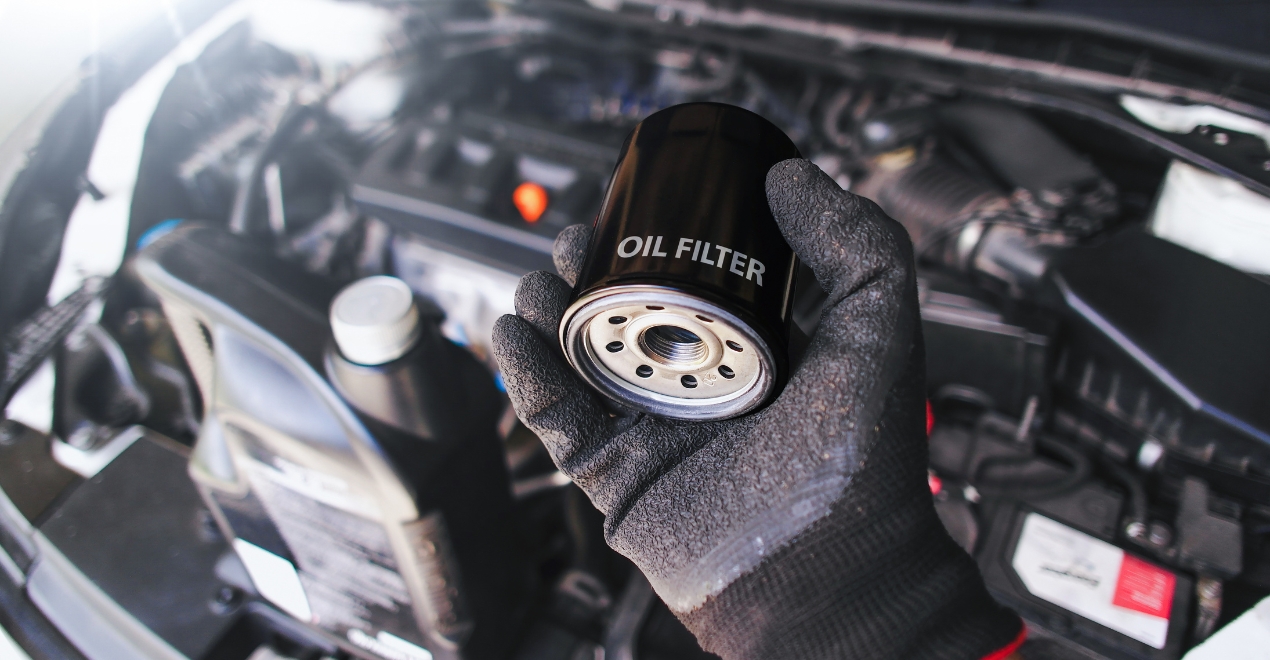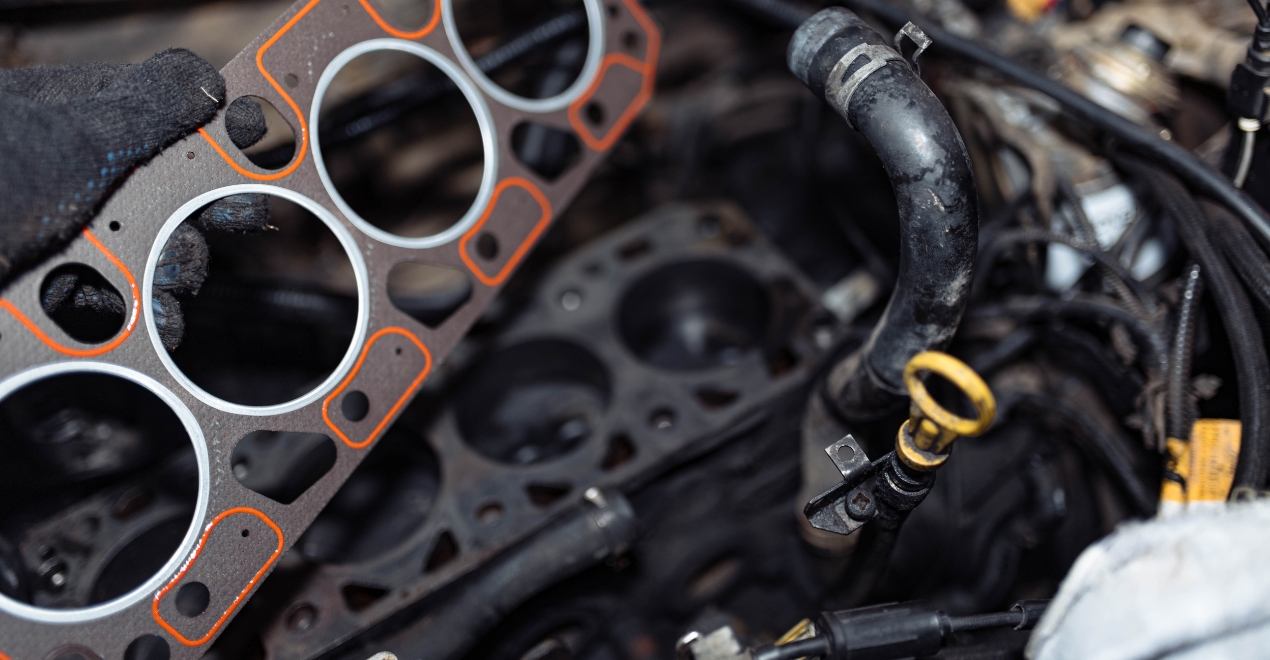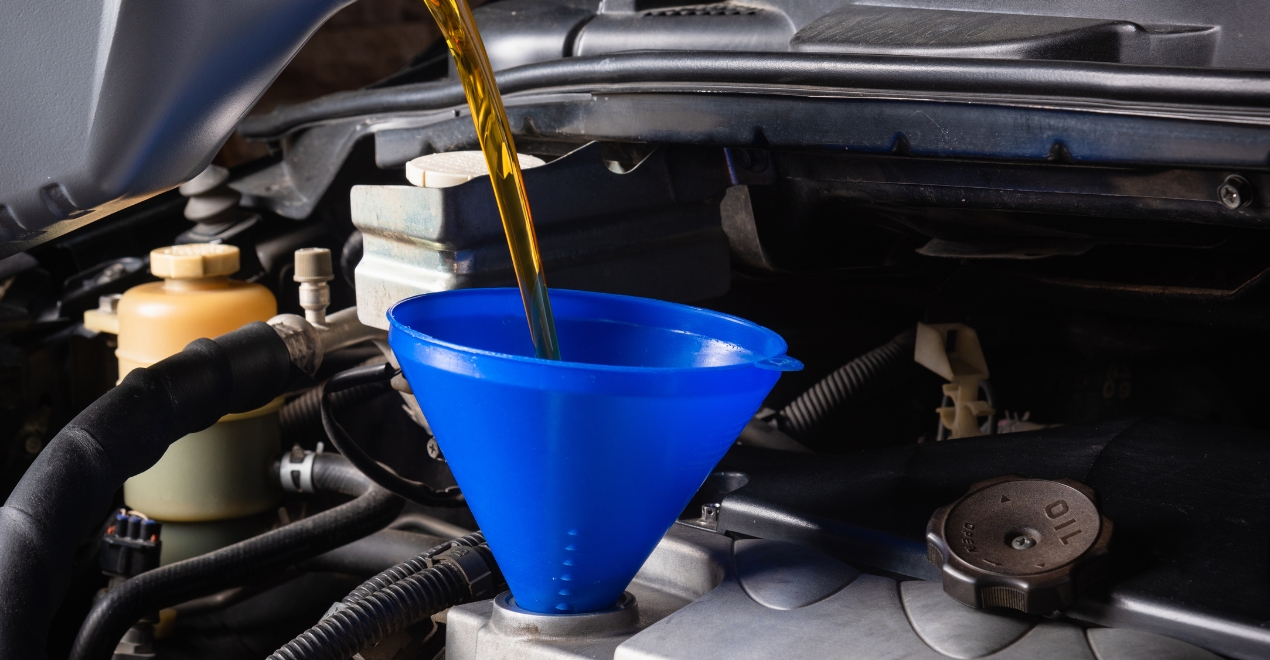Engine oil leaks are a prevalent issue for many vehicle owners, often leading to costly repairs and maintenance if not promptly addressed. Understanding the common causes of oil leaks in engines can help in diagnosing the problem early and taking necessary actions to prevent severe damage. This article delves into the five most common causes of oil leaks in engines, providing detailed explanations and tips on how to mitigate these issues. Need help with an oil leak? Reach out to Crossroads Helpline for professional advice and reliable service.
Table of Contents
ToggleWorn Out or Damaged Oil Filter

The oil filter plays a crucial role in maintaining the health of an engine by filtering out contaminants from the oil. Over time, however, the oil filter itself can become worn out or damaged, leading to leaks. This is often due to the filter’s seals or gaskets deteriorating, which compromises its ability to keep oil contained.
A common scenario is an improperly installed oil filter. If not screwed on correctly, the filter may develop gaps that allow oil to seep out. Additionally, using a low-quality or incompatible oil filter can result in poor sealing and, consequently, leaks. Regularly replacing the oil filter as per the manufacturer’s recommendations and ensuring it is properly installed can prevent such issues.
Another related problem is the presence of debris or sludge that can clog the filter. When the filter is clogged, it can cause a pressure buildup within the engine, leading to oil leaks. Regular oil changes and using high-quality oil can help prevent sludge buildup, thereby prolonging the life of the oil filter and preventing leaks.
Deteriorated Valve Cover Gasket
The valve cover gasket is another critical component that often causes oil leaks when it deteriorates. Located at the top of the engine, the valve cover gasket seals the valve cover to the top of the engine cylinder head, preventing oil from leaking out. Over time, exposure to high temperatures and constant pressure can cause the gasket to become brittle and crack.
When the valve cover gasket fails, oil can leak from the top of the engine and often ends up dripping down the sides. This not only results in an unsightly mess but can also lead to a significant drop in oil levels if left unchecked. Symptoms of a leaking valve cover gasket include visible oil on the engine exterior, burning oil smells, and smoke coming from the engine bay.
To address this issue, the valve cover gasket needs to be replaced. Regular inspections during routine maintenance can help detect early signs of gasket wear and tear, allowing for timely replacement before severe leaks occur. Using high-quality gaskets designed to withstand the engine’s operating conditions can also reduce the likelihood of premature gasket failure.
Faulty Oil Pan Gasket

The oil pan gasket seals the oil pan to the bottom of the engine block, preventing oil from leaking out. Over time, this gasket can wear out due to constant exposure to heat, pressure, and vibrations. A worn-out oil pan gasket can lead to oil leaking directly onto the ground or other parts of the engine, which can be both messy and dangerous.
One common cause of oil pan gasket failure is improper installation. If the gasket is not correctly aligned or the bolts securing the oil pan are not torqued to the correct specifications, it can result in an inadequate seal. Additionally, driving on rough terrain or hitting road debris can damage the oil pan, exacerbating gasket wear and causing leaks.
Regular inspections of the oil pan area during oil changes or routine maintenance can help identify any potential issues with the gasket. Replacing the oil pan gasket involves draining the engine oil, removing the oil pan, and cleaning the surfaces before installing a new gasket. Using a high-quality gasket and ensuring proper installation can prevent leaks and prolong the life of the oil pan.
Damaged Engine Seals
Engine seals, such as the rear main seal and the camshaft seal, are critical for keeping oil contained within the engine. These seals are located in various parts of the engine and are subject to wear and tear over time due to constant exposure to heat and pressure. When these seals fail, they can cause significant oil leaks that can be challenging to diagnose and repair.
The rear main seal, located at the back of the engine where the crankshaft exits the engine block, is particularly prone to leakage. This seal prevents oil from leaking out where the crankshaft connects to the transmission. When the rear main seal fails, oil can leak between the engine and transmission, often leading to a noticeable drop in oil levels and potential damage to the transmission.
Camshaft seals, which are located at the ends of the camshaft, can also develop leaks. These seals prevent oil from escaping where the camshaft exits the engine block. Failure of these seals can result in oil leaking onto the timing belt or chain, potentially leading to severe engine damage if not addressed promptly.
Replacing these seals often requires significant disassembly of the engine, making it a complex and labor-intensive task. Regular maintenance and using high-quality seals can help prevent premature seal failure and the associated oil leaks.
Overfilled or Improperly Maintained Oil Leaks

Overfilling the engine with oil or neglecting regular oil changes and maintenance can also lead to oil leaks. When too much oil is added to the engine, it can cause excessive pressure within the oil system, leading to leaks from various seals and gaskets. Additionally, overfilled oil can cause frothing or aeration, which reduces the oil’s ability to lubricate and cool the engine effectively.
Neglecting regular oil changes can result in the oil becoming dirty and losing its effectiveness. Dirty oil can lead to sludge buildup within the engine, which can clog oil passages and filters, causing increased pressure and potential leaks. Regular oil changes, as recommended by the vehicle manufacturer, are essential for maintaining the health of the engine and preventing leaks.
Furthermore, using the incorrect type or grade of oil can also contribute to oil leaks. It is crucial to use the oil specified by the manufacturer, as using oil that is too thick or too thin can affect the engine’s performance and lead to leaks. Consulting the vehicle’s owner manual and following the recommended oil specifications can prevent such issues.
Conclusion
Oil leaks in engines are a common yet preventable issue that can lead to significant damage if not addressed promptly. By understanding the common causes of oil leaks, such as worn-out oil filters, deteriorated valve cover gaskets, faulty oil pan gaskets, damaged engine seals, and improper maintenance of the oil system, vehicle owners can take proactive measures to maintain their engines’ health.
Regular inspections and maintenance, using high-quality components, and following manufacturer recommendations for oil changes and specifications are crucial steps in preventing oil leaks. By taking these preventative measures, vehicle owners can ensure their engines run smoothly and avoid the costly repairs associated with oil leaks.

